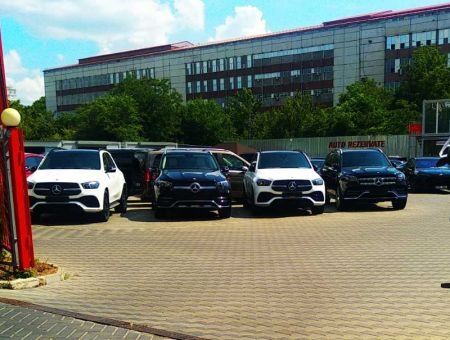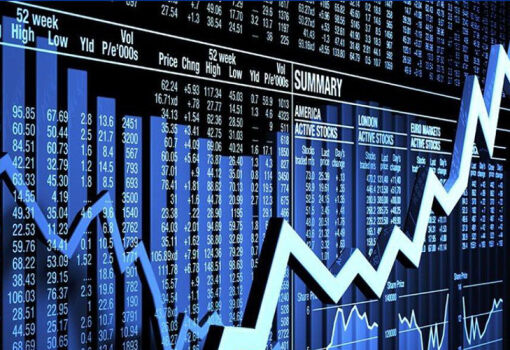
From January 1, 2025, Moldova is planning to introduce a new tax formula applied to car imports, which provides for the abolition of VAT exemption.
The initiative to change the system of automobile fees in question has been submitted for public discussion by the Ministry of Finance. The authorities plan to change the procedure for taxation and customs clearance of imported cars so that taxes are paid based on their value, rather than engine displacement, as is currently the case.
Among other things, the document proposes to change the tax regime applicable to passenger cars by imposing VAT on them on general principles from January 1, 2025.
What public interests are being pursued in this?
The fact is that currently in Moldova cars have a zero VAT rate on import, but they are subject to non-refundable excise taxes, which are applied depending on the engine displacement, as well as on the age of the car. By the way, the coefficient increasing excise taxes increases moderately in the first years and reaches very high amounts for cars older than 10 years.
The authorities expectedly and logically indicate the need to “comply with the obligations to harmonize tax and customs legislation” with the EU legal framework. According to the developers of the amendments, car imports in Moldova are taxed differently than in the EU countries, based on an outdated methodology.
This is a noble goal, but as they say with good intentions….
The fact is that our country has already gone through this.
In times when the authorities applied VAT and duties, the market became “gray”, and money flows often bypassed the state treasury.
Fraud with invoices between individuals flourished and allowed to underestimate the value of imported cars by times, respectively, the state budget was underpaid in the same proportions.
The introduction of the excise tax system in 2001 corrected the situation, and budget revenues increased significantly. But the most important thing is that the system became very transparent, clear and excluded any manipulations aimed at reducing the amount of excise duty on imported cars.
This disciplined the market and took out of gray schemes huge cash flows, including at the expense of unauthorized importers and individuals, who import up to 75% of the total number of imported cars.
Experts remind that the scheme in place today also makes it possible to increase deductions to the state treasury if necessary. Revenues to the budget can easily be raised by increasing excise duties on imported cars.
The initiative, if approved in its current form, entails many problems and challenges for all participants of the automobile market.
There is a high probability that numerous abuses in the automobile market in Moldova will start again.
Unofficial importers, who import more than 75% of all imported cars, will actively underestimate the value of imported cars.
It was very difficult to fight this phenomenon, not only because the risk of involvement of customs officials in corruption schemes increases significantly, for a certain fee they will be ready to turn a blind eye to the reduction of the cost of the car. And also because there are many seemingly “legal”, but often fraudulent, schemes to underestimate the customs value of a car (a car after an accident, beaten by hail, after a “flood”, bought in a salon after being used for test drives, etc., etc.). These schemes are waiting for their time and, most likely, will be resumed immediately after the “innovations”.
It is impossible for official importers, whose car centers employ thousands of people and receive official salaries, to underestimate the customs value, as the prices of shipments from the car manufacturer, which under no circumstances do not “cheat” with invoices, are easy to check. Accordingly, the development of a transparent car market will be stopped, and the country will roll back 20 years in this matter.
Another “surprise” was the authorities’ intention to keep excise duties (though with their reduction by 70% in 2025, up to 90% in 2027) and the so-called luxury tax (from 2% to 10% depending on the value of the car) simultaneously with the introduction of VAT.
What does this mean for the country’s organized automobile market, which annually contributes hundreds of millions of lei to the budget?
– The increase in the price of new cars up to 15% compared to the current retail prices will hit the individuals the hardest, as they will not be refunded the VAT. This will be one of the factors of sales decline at official importers, who provide jobs to a large number of highly qualified workers, pay all taxes, provide quality service, original spare parts and bear warranty obligations for cars;
– Many citizens of the Republic of Moldova, who have Romanian passports, will find it more profitable to buy and register cars in the neighboring country – Romania, which will be another factor in the fall of sales at official importers, who pay all taxes in their country.
And a drop in sales means business stagnation, freezing or reducing salaries and the number of employees, reducing all related taxes, as well as curtailing investment plans for the construction of new car centers in Chisinau and the province.
At the same time, unauthorized economic agents, who have no relationship with the Moldovan budget, will benefit.
The new legislative proposal will be very favorable to Romanian car sellers, as well as to unofficial importers and individuals who own more than 75% of the market. Rumor has it that these individuals are the ones who apparently promoted the idea at various levels. Although, most likely, this is not the case, and the “new ideas” are put forward by people who have not fully understood the topic and do not own the realities of the national automobile market.
It is highly probable that this system was developed at the request of several foreign companies that practice purchasing cars in operating leasing. At the same time, according to experts’ calculations, the number of these cars does not exceed several hundreds per year, which raises the question: is it worth ruining the developing national automobile business for the sake of selfless love for some foreigners on the part of some ministers?
At the same time, the American Chamber of Commerce in Moldova (AmCham Moldova), in its letter to the Government, quite objectively, drew the attention of the authors of the draft fiscal and customs policy for 2024 to the inexpediency of any changes in the system of import and taxation of automobiles, giving relevant arguments.
What do the authorities say?
Valerii Kozyrev, head of the Customs Service’s Customs Appointment Department, commenting on the initiative for Radio-Moldova, said that citizens who will bring newer vehicles will have to pay higher fees, while those who have older cars will find it cheaper to import them. At the same time, he believes that the authorities will take care to create less comfortable conditions for importing “age” autos. “The introduction of older cars should not be too easy. I feel a pollution tax will be imposed. Importation will be convenient in terms of customs payments, but in terms of environmental payments importation will not be convenient,” Kozyrev said.
So far, there are more questions than answers.
At the moment, the initiative to amend the legislation leaves many questions open.
How will the issues of understatement of taxes, unfair competition and problems arising on this ground be solved?
How will problems regarding ecology and utilization be solved? There is no clear understanding of how the new law will be applied to electric and hybrid vehicles of all types.
To a greater or lesser extent, the new rules, if approved, will provide an incentive for those wishing to introduce cheap “ageing” cars that are less environmentally friendly and less safe, as well as new ones, but from other markets or with “problems” (the schemes described above). In this regard, it is worth mentioning that based on new car registration data, only 21.9% of the total number of imported cars in 2022 were new cars. By comparison, 15 years earlier, in 2007, the share of new cars exceeded 40%.
And we have not found any forecasts on how this innovation will affect the state budget revenues, while the risks of reduced revenues are quite obvious.
Thus, it is highly desirable that our “reformers”, in an effort to turn the Moldovan car market “upside down”, have answered the following basic questions (the list is not complete):
– How will the innovations contribute to the transparency, legalization and development of the automobile market, which has created and can create thousands more high-paying jobs in Chisinau and in the provinces?
– How will the innovations contribute to the increase of revenues to the budgets of all levels?
– How will the innovation contribute to the decriminalization of the automobile market?
– How will the innovations contribute to the development of local importers, who have invested billions of lei in the construction of car centers and intend to continue doing so, developing a legal business profitable for the state?
– How will the innovations contribute to increasing the environmental friendliness and safety of cars imported into the country?













